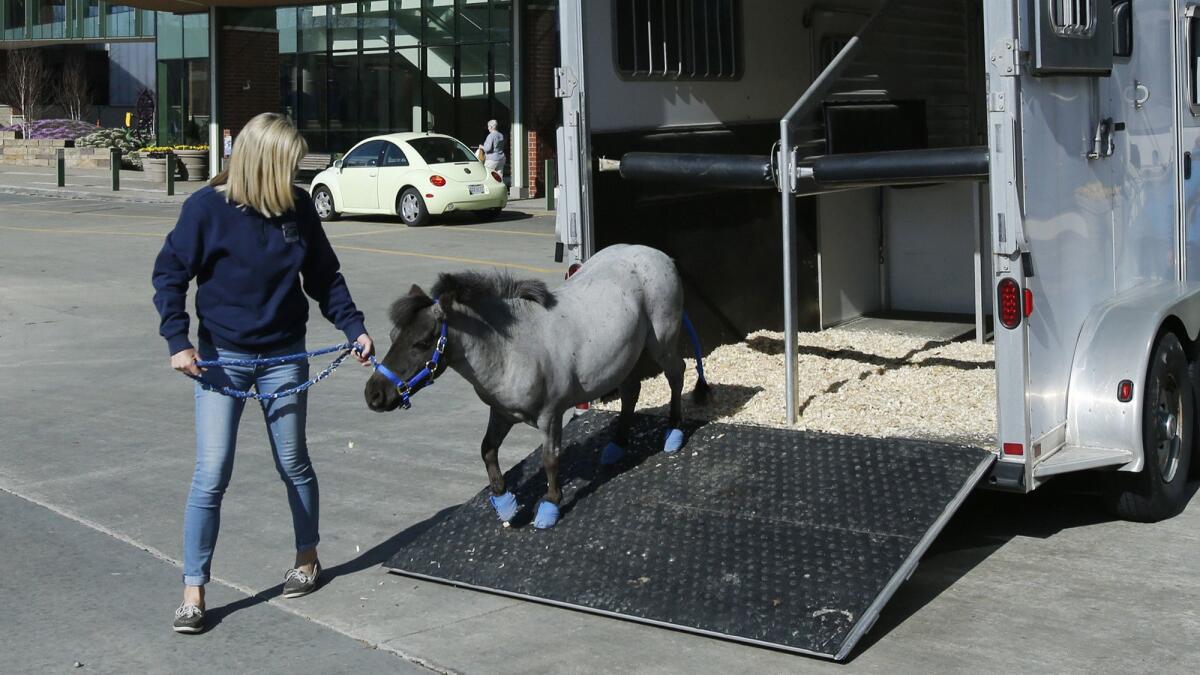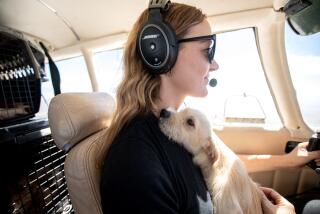JetBlue tightens rules for emotional support animals

- Share via
JetBlue Airways has joined several other U.S. air carriers in adopting new restrictions on passengers who want to travel with emotional support animals by limiting the accepted animals to dogs, cats and miniature horses.
Like other carriers, JetBlue attributed the need for tighter rules to an increase in the number of onboard incidents involving untrained emotional support animals. Such incidents include biting, defecating, urinating and lunging at other passengers. Delta Air Lines said it has seen an 84% increase in such animal incidents since 2016.
“With these new policies, we’ve developed a thoughtful and collaborative approach to balance the needs of customers requiring assistance while responding to the extensive feedback we’ve received from customers and crew members concerned about their health and safety,” said John Allen, JetBlue’s vice president for safety.
The new policy doesn’t affect rules for service animals, which are trained to provide specific services for people with physical disabilities, such as blindness.
To fly with emotional support animals, JetBlue passengers must provide a signed document from the mental health professional who prescribed traveling with an animal and a letter from a veterinarian attesting to the animal’s vaccinations and fitness to fly. Passengers must sign a document affirming that the animal is trained to behave appropriately in a plane and accepting all liabilities if the creature causes injuries or damage to the plane.
The documents must be submitted to JetBlue at least 48 hours before a flight, for all travel taken beginning July 1.
JetBlue will allow only one animal per passenger, and that animal must be a dog, cat or miniature horse.
American Airlines announced last month that it would ban several types of critters, including hedgehogs, goats, ferrets, chickens, birds of prey and snakes.
Airlines are required by the Air Carrier Access Act to allow passengers with a disability to travel with an animal that provides emotional support, and airlines aren’t allowed to charge for the service. But airline representatives have said they believe many people are taking advantage of the act to avoid paying animal transport fees.
Last month, the U.S. Department of Transportation said it won’t take action against airlines if they refuse to let passengers take aboard more than one support animal, demand assurance that a passenger has a disability or require proof of an animal’s vaccination and training.
The agency also will allow airlines to impose “reasonable restrictions” on the movement of emotional support animals in a plane’s cabin. The Department of Transportation is also seeking public comment on possible additional regulations to further restrict the animals.
To read more about the travel and tourism industries, follow @hugomartin on Twitter.
More to Read
Inside the business of entertainment
The Wide Shot brings you news, analysis and insights on everything from streaming wars to production — and what it all means for the future.
You may occasionally receive promotional content from the Los Angeles Times.











